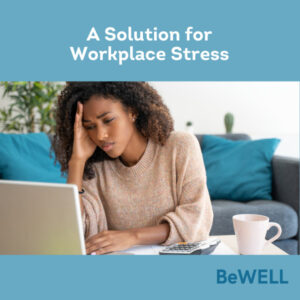The obesity epidemic has been a hot topic in the news over the past few years, and has recently gained more attention after the American Academy of Pediatrics released new standards encouraging drug therapy and even surgery for children struggling with obesity, as young as age twelve. If you follow anyone in Hollywood, you’ve probably heard of the “miracle drug”, Ozempic, that has many stars shedding pounds in record time. But what is Ozempic? Is it safe? Is it solving the root cause of obesity? And is it doing more harm than good when it comes to the mental health of the patient?
Do You Struggle With Obesity?
Obesity is a condition that occurs when you have an excess amount of body fat. The Body Mass Index (BMI) is used to determine if someone is in a “normal” weight range, if they are overweight or if they are obese. A BMI between 25 and 29.9 is considered overweight; 30 or greater indicates obesity. It is important to note that the BMI is a controversial measuring tool that was developed in the 1830’s and many healthcare professionals are now deeming this use of measurement as outdated, flawed, and even racist. It is still currently used by the CDC.
The Centers for Disease Control and Prevention estimates that more than one-third of American adults are obese. The CDC also reports that about nine out of 10 people who lose 5% or more of their body weight will keep it off for at least five years; however, only about 5% succeed at losing this much weight on their own without medical intervention such as bariatric surgery or drugs like Ozempic.
What is Ozempic?
The obesity epidemic has been on the rise for decades, and the pharmaceutical industry has responded with a wave of weight loss drugs like Ozempic. Ozempic (semaglutide) is a medication that’s used to treat type 2 diabetes, by helping your body produce more insulin. The drug was approved by the FDA in September 2018, but it has been around for years in Europe under the name Ozempic. It has now been approved by the FDA as part of a comprehensive treatment plan for obesity. The medication helps patients lose weight by reducing appetite and increasing satiety (feeling full). This means that if you’re trying to lose weight on your own or with other methods like dieting and exercise, taking this medication may help you reach your goals faster than if you were doing it alone.
Obesity and Mental Health
While obesity is defined as a physical disorder, it has a tremendous impact on mental and emotional well being. Obese individuals are more likely to suffer from depression, anxiety, and low self-esteem than those of normal weight. According to Be.Well Therapist Arianna Eisenberg, LSCW, individuals who struggle with obesity often feel immense shame, guilt, and body dissatisfaction. They often feel unsafe and uncomfortable in their bodies, a problem a drug like Ozempic cannot solve. “Ozempic is only going to solve your physical body, it won’t solve the trigger of having a body.” she explains.
The Root Cause of Obesity
There is no singular cause of obesity, factors such as socioeconomic status, culture, and lifestyle all play a role, however obesity is often coupled with disordered eating. Many obese individuals struggle with Binge Eating Disorder (BED), a type of eating disorder characterized by recurrent episodes of binge eating, which is eating an unusually large amount of food in a short period of time and feeling a lack of control over eating during the episode. People with BED often experience guilt, shame, and distress after a binge episode, which can lead to further episodes of binge eating. Obesity is a common consequence of BED, as people with this disorder tend to consume more calories than their body needs, leading to weight gain over time.
According to the National Eating Disorders Association (NEDA), 2.8% of adults in the United States will experience BED in their lifetime, and the disorder affects both men and women equally. BED is the most common eating disorder among adults in the US. People who struggle with BED often have more severe levels of depression and obsessive-compulsive symptoms, and stronger feelings of inadequacy and inferiority than those without.
“Eating disorders are maladaptive, negative coping skills, built around an emotional problem or trauma. Often, your eating disorder is trying to protect you from something very big and very scary.” says Eisenberg “And emotional problems need emotional solutions,”
Is Ozempic the Solution?
There are many reasons why Ozempic may be popular among doctors and patients alike, including its convenience, but are drugs like this one actually a magic bullet for people suffering from obesity? Some would argue maybe. “For someone suffering from Binge Eating Disorder and obesity, this drug can give you hope.” explained Arianna. She goes on to explain that drugs like Ozempic may in fact also impact compulsion. “People report less compulsive thoughts while on Ozempic, and not just with food, this could be extremely useful. If Ozempic can help shrink the compulsion and obesity, it could give the patient more space and time to learn new coping skills for their emotional triggers… but that takes therapy.”
Is Ozempic Right For You?
If you are struggling with obesity, you may be thinking about starting a drug like Ozempic. Talking to your healthcare provider is the first step in figuring out if drug therapy is a good plan, but don’t forget to also address your emotional and mental health. By focusing solely on weight loss drugs, we are ignoring the deeper issues that often contribute to obesity. At Be.Well, we want to help shift the focus away from quick fixes and towards a more holistic approach to weight loss, acceptance, and healing. This means addressing the psychological factors that contribute to obesity, so we can create lasting change in the lives of those struggling with obesity and tackle the root causes.
Be.WELL Can Help
If you are looking for a safe and judgment-free space to support you through disordered eating, body image struggles, or obesity, Be.WELL can help. With offices in Midtown Manhattan, New York and Hoboken, as well as virtual therapy sessions, Be.WELL. can help you take control of your mental well being, and navigate your way through this challenging journey, by connecting your mind, body, and spirit.



